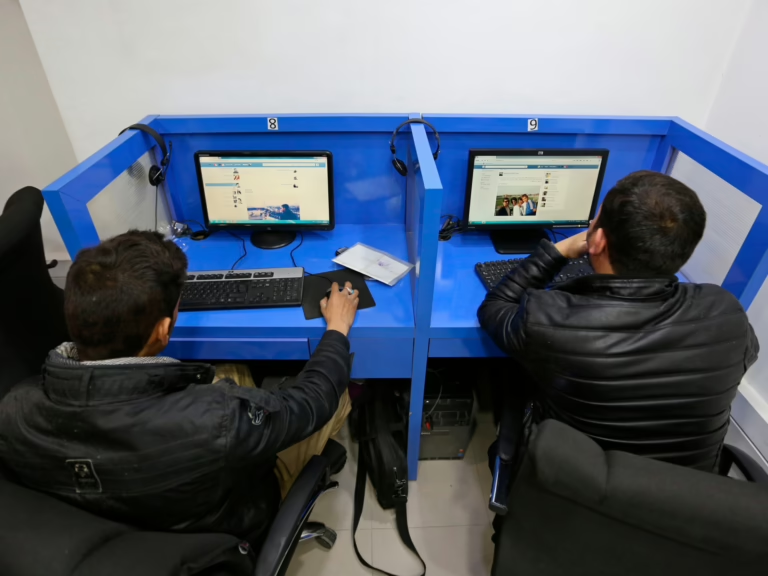During my childhood, Afghans had to cross into Pakistan just to make phone calls to relatives abroad. Now, we confront a troubling reality where accessing the internet might soon require traveling outside our own borders.
Recently, fibre-optic internet services were suspended in multiple provinces such as Kandahar, Helmand, and Balkh, with the possibility of this restriction spreading nationwide. If the Taliban leadership does not revise its stance, Afghanistan risks becoming isolated from global connectivity.
This could mean that my writings, along with those of countless other Afghans, may no longer reach the outside world. The country could plunge into a digital silence.
Following the internet shutdown in Balkh, Haji Zaid, a representative of the provincial government, stated on X that the directive came directly from Taliban leader Haibatullah Akhunzada, aiming to curb “immoral” content.
Nonetheless, many criticized this decision, emphasizing that a viable alternative should have been established before enforcing such a ban.
A complete internet blackout would have far-reaching consequences for Afghan society. Commercial enterprises and banking operations would face immediate disruption. Educational opportunities, including online courses and scholarships, would vanish. Numerous NGOs, international organizations, and government services reliant on digital platforms would encounter severe obstacles, while freelancers and remote workers would lose their livelihoods. Communication with the global community would be severed.
My own family would be deeply affected. Having struggled with unemployment for several years, I have found various online avenues to generate income, such as creating a YouTube channel to highlight Afghanistan’s scenic beauty. More crucially, a reliable internet connection allows us to maintain contact with relatives living abroad, whom we may not see for many years.
Cutting off internet access would isolate Afghanistan on the world stage, akin to imposing a self-inflicted embargo. This would exacerbate challenges across multiple sectors, particularly the fragile economy.
Rather than resorting to such drastic measures, Afghanistan could look to China’s example. China, now the world’s second-largest economy, owes much of its growth to the reforms and opening-up policies initiated by Deng Xiaoping in 1978, which transformed it from a poor nation into a manufacturing powerhouse.
When internet usage expanded in China during the 2000s, the government recognized potential risks. Instead of severing global connections, Beijing invested in developing domestic internet infrastructure and content filtering systems. This approach allows them to block undesirable material without disconnecting 1.4 billion citizens from the global network.
In Afghanistan, content deemed inappropriate is already filtered to restrict access. If the government believes these measures are insufficient, technological enhancements could improve their effectiveness. It is important to acknowledge that shutting down the internet entirely will not eliminate “immorality” in society.
If the intention behind this policy is to pressure the international community into granting formal recognition, it is unlikely to succeed. Instead, it will primarily harm ordinary Afghans without compelling other nations to alter their diplomatic positions.
Today, internet access is as vital as basic necessities like food and water. After two decades of digital engagement, the prospect of reverting to the isolation experienced by previous generations-relying solely on radio broadcasts for news-feels daunting in an age of rapid technological advancement and artificial intelligence.
As I compose this article, I find myself anxiously monitoring my internet connection, fearful it might be cut off before I can submit it. The thought of returning to a time when information was scarce and communication limited is deeply unsettling.
Our voices deserve to be heard, and we seek the world’s understanding and support during these difficult times. An Afghanistan marginalized, disconnected, and impoverished benefits no one. We aspire to remain engaged with the global community, not to be consigned to complete isolation.
The opinions expressed here are those of the author and do not necessarily represent the views of the publishing platform.
























